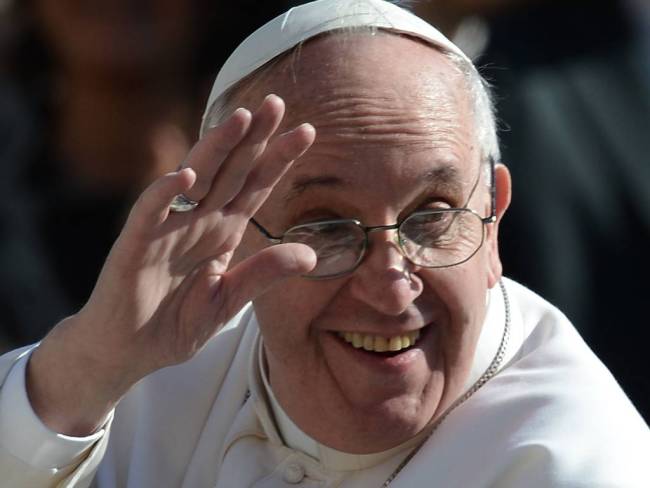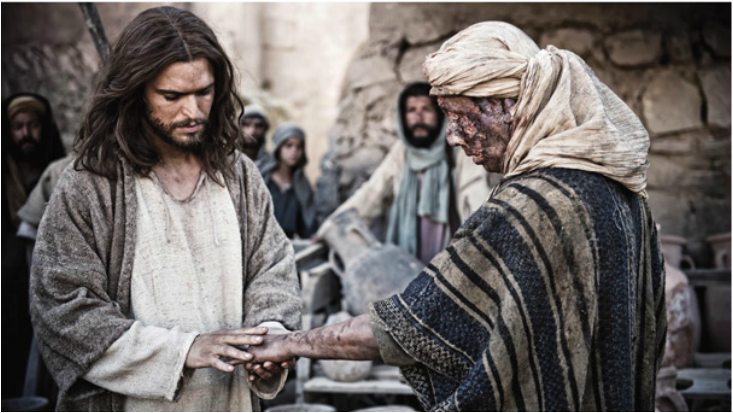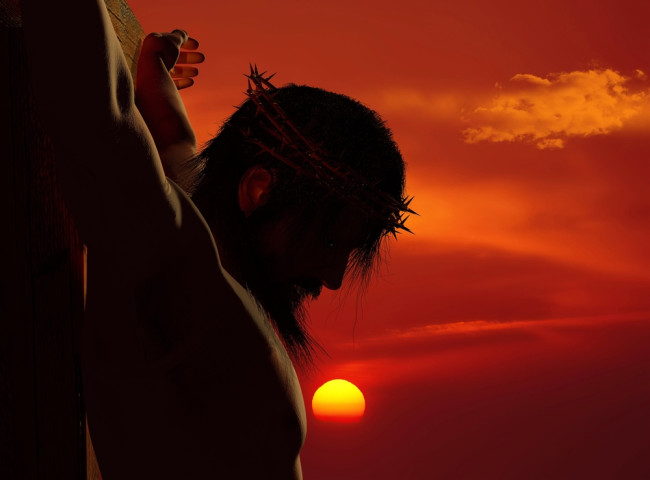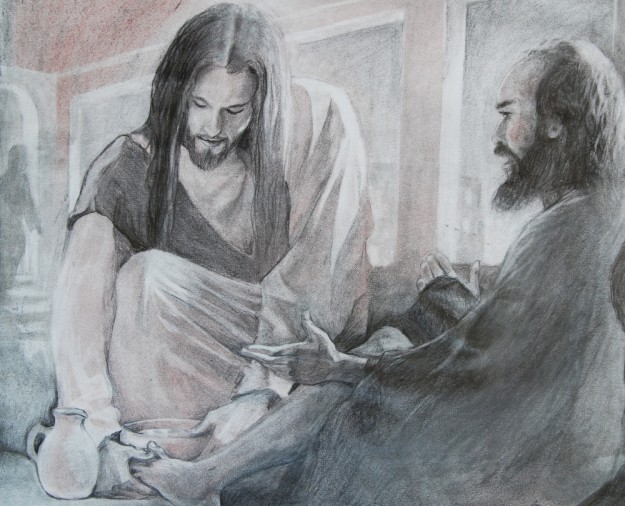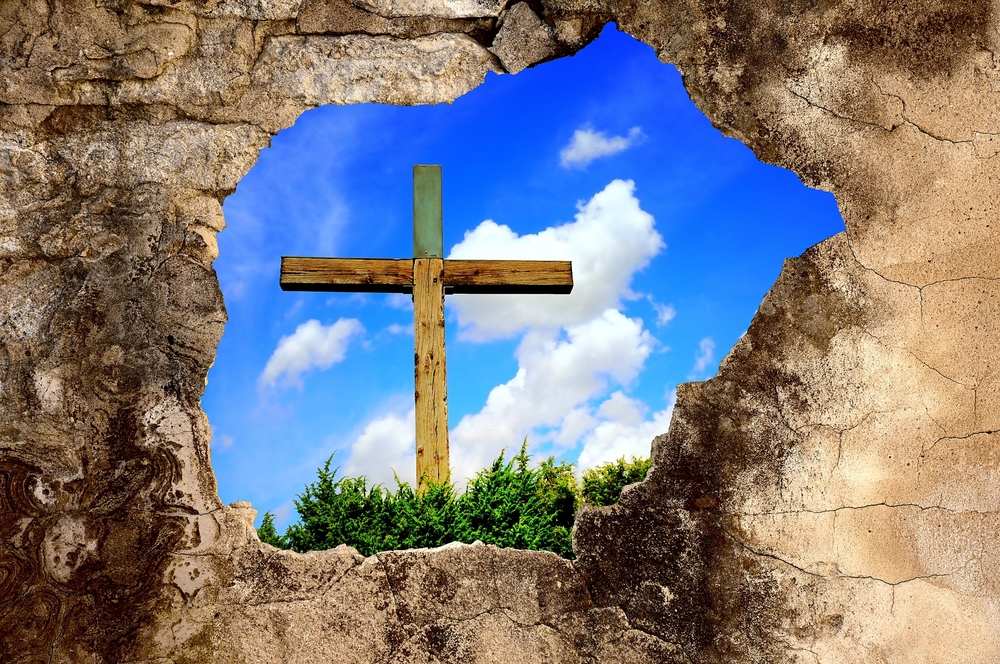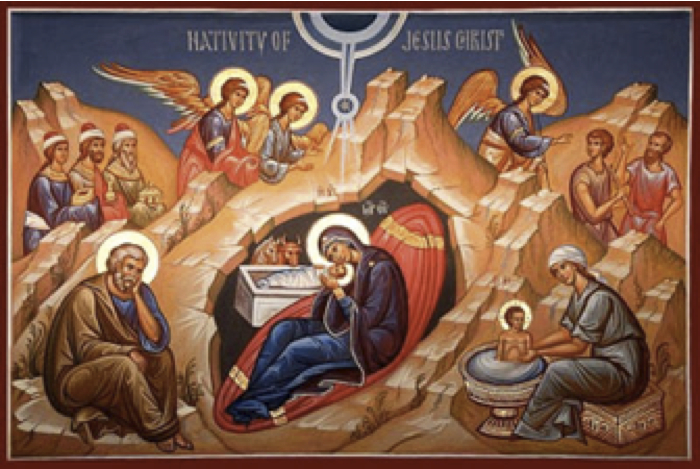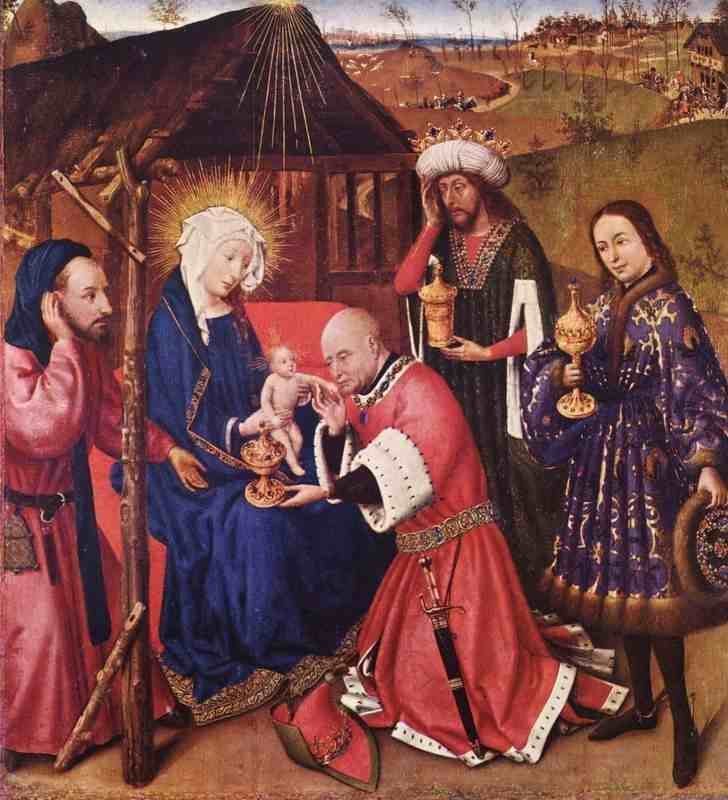The Brief Observance of a Holy Nativity
Even non-theists and progressive Christian types love to sing Christmas carols. And, as the British atheist, Alain de Botton, once said, "Religions are intermittently too useful, effective and intelligent to be abandoned to the religious alone." The annual observance of one holy nativity is the perennial reminder to respect and beatify the dignity and sacredness of every birth, everywhere.
In this article, I would like to point out 3 crucial problems that arise when one begins with “plain truths” about the book rather than the Christ, the Logos, the “structuring principle of reality.” (John 1:1–5)
When the Reason for the Season Goes Missing
This is the season Christian faith communities of every sort prepare in one way or another to observe the nativity of something deemed to be holy and salvific. We recall ancient prophecies that foretell a “prince of peace, and wonderful counselor” comes around each year with a message to save us from ourselves. (Isaiah 9:6) Once born into a world of violence and terror not unlike our own, the message remains unchanged. Regrettably, so too has been the obstinate ways in which we have collectively refused to live with one another in response to that message.
Written January 2002
Worship is a 'receipt' given to God in return for the divine gifts of life which we receive.... It is an artful response to our awe and wonderment at the miracle of creation which surrounds us.....
“LAUDATO SI’, mi’ Signore” – “Praise be to you, my Lord”. In the words of this beautiful canticle, Saint Francis of Assisi reminds us that our common home is like a sister with whom we share our life and a beautiful mother who opens her arms to embrace us. “Praise be to you, my Lord, through our Sister, Mother Earth, who sustains and governs us, and who produces various fruit with colored flowers and herbs”.
Civilization defines justice as retribution – payback; an eye for an eye. But the deeper meaning of justice is distributive: the rain falls on the good, the bad, and the ugly without partiality. Civilization does not use that definition except in cases where there is clearly injustice if partiality enters the picture.
(Excerpt from Theology From Exile Vol. III, The Year of Mark by Sea Raven, D.Min.) Acts 10:34-43; Isaiah 25:6-9; Psalm 118:14-24; 1 Corinthians
This past year, at my congregation on Cape Cod, we began to celebrate the seasons of the year as part of our affirmation
Hebrew Scripture’s View of Life after Death It wasn’t until after the Babylonian Exile that the Pharisees accepted the idea of heaven and
For Christians grace is God’s gift of pardon. According to William Barclay the Greek word for grace was originally a military term. When an emperor came to the throne or celebrated a birthday, he would give his troops a donatirim (donation), which was a free gift that they had not earned; it was given out of the goodness of the emperor’s heart. This idea was picked up by the Christian scripture writers when they wrote about the grace of God. Grace is something that is unearned and undeserved – unmerited pardon.
Eschatology is the study of last things, the final events in history, the ultimate destiny of humanity, the end of the world. Major issues in eschatology include the rapture, the second coming of Jesus, the tribulation, Millennialism, and the last judgment. Most of the Christian books I have read do not seriously concern themselves with eschatology, but the Left Behind series of books made it a popular topic. All twelve novels in the series made the New York Times bestselling fiction list – note: the fiction list. Prior to the Left Behind novels of the 1990s, Hal Lindsey’s 1970s bestselling books, including The Late Great Planet Earth, were also bestsellers.
One of the most reliable facts concerning Jesus is that he was crucified during the reign and by the action of the Roman procurator, Pontius Pilate, who served by appointment of the Caesar from 26-36 CE. The Roman senator and historian Tacitus referred to Jesus’ execution by Pilate in his Annals, which was written circa 116 CE. Beyond that, however, there is not much historical evidence.
The church sign can be easily read by anyone driving by: “You can’t be a devoted follower of Jesus unless you are part of a local church.” Does the church that posts this sign not trust the people with Jesus’s message? What is the meaning of “incarnation” if not “embodiment” by individual persons of the spirit of the Christ? Is the “Body of Christ” for members only? The Apostle Paul created the metaphor of the “Body of Christ” as the community of followers. In 1 Corinthians 10:16-17, he explains the meaning of the ritually-shared meal: “The cup of God’s gracious benefits that we consecrate means that we are involved in the blood of the Anointed, doesn’t it? The bread that we break means that we are involved in the body of the Anointed, doesn’t it? That there is one loaf means that we who are many constitute one body, because we all partake of the one loaf.” In Romans 12:5 he says, “Just as each of us has one body with many parts that do not all have the same function, so although there are many of us, we are the Anointed’s body, interrelated with one another.”
But what our guide told us next has stayed in my memory for the almost twenty years since my visit. With a shrug of his shoulders he explained, “Well, we need a site. An important event—we need to have a site. Do we know exactly where it happened? No. But we must have a site so that we can remember.”
Most people assume that the Bible is filled with stories of supernatural happenings and miraculous interventions. The accounts of miracles in the Bible are generally limited to three cycles of stories: the Moses-Joshua cycle in the Torah, the Elijah-Elisha stories that are recorded between I Kings 17 and II Kings 13, and the Jesus-Disciples of Jesus stories that are found in the four gospels. There is an occasional supernatural tale in other parts of the Bible, but these are the only areas where they are concentrated. Our concentration is primarily on the miracles that are attributed to Jesus in the gospels. The reported supernatural deeds performed by Jesus during his ministry can be categorized into four groups: cures, exorcisms, raising the dead, and nature control. Interestingly, each type of miracle that is attributed to Jesus in the gospels also occurred in the Moses-Joshua and Elijah-Elisha stories.
In Matthew’s midrash of Isaiah’s prophecy, Jesus tours all over Galilee, teaching in the synagogues, curing all kinds of diseases, and proclaiming that God’s kingdom has come. The verses in Chapter 4 selected by the creators of the Revised Common Lectionary for the third Sunday after the Epiphany are the preface to Matthew 5:1 through 7:29, the great Sermon on the Mount. Jesus walks by the Sea of Galilee, and invites his disciples to leave their nets and become “fishers for people,” traditionally interpreted to mean saving souls from hell. But John Dominic Crossan, points out that Jesus could have brought his message anywhere in Roman occupied Judea. Why Galilee? Why Capernaum?
On the First Sunday of the Advent season this year – for those Christian faith communities that observe a liturgical calendar -- the traditional four weeks of waiting on the tiptoe of expectation only lasted until 1:37 PM that afternoon for our family; when my own daughter gave birth to her first-born child.
"Voting is irrational." This jarring statement comes from Paul Woodruff, professor of philosophy at the University of Texas in Austin, in his wise book, REVERENCE: Renewing a Forgotten Virtue. Paul came to USC a few months ago, hosted by my office, to give a series of talks. He's a person who emanates the virtue that he teaches, speaking with a calm, reflective demeanor. Woodruff posits that unless we understand voting as a ritual, we'll miss the point of it, and continue to see a decline in voter participation.
A Reflection for Twelfth Night and the Epiphany Season
The journey of the magi, and their adoration on bended knee before a newborn peasant who presumably comes to subordinate the Herod’s of this world is a quaint and fanciful tale. But this year, the real exchange of gifts in the City of Angels was a modern day epiphany that suggest we might indeed still find for ourselves new, authentic life in such an otherwise arcane myth. Now the question is whether the meaning and message of Epiphany season will truly shed new light in the bleak midwinter of our discontent.
Jerusalem, Now and When?
Why would a Jewish American doctor risk serving the medical needs of Palestinian children in the occupied territories of the West Bank?
"….seek justice, correct oppression; defend the fatherless, plead for the widow." (Isaiah 1: 17) Here's how I translate this biblical urging into the
Wandering in the desert cleanses my soul of hubris. It puts me in my puny place in the cosmos. It's bigger than I am, bigger than we are. A hike in the desert is a walk on the "via negativa". Its vistas sweep away all that obscures the divine, so that God, though always near, seems nearer.
2) The Hebrew scriptures, or the Old Testament, represent a religious tradition that is independent of the later Christian faith. The Hebrew scriptures aren't about Jesus, although the Christian scriptures include many references to the Hebrew scriptures. To honor the fundamental differences between the two sets of scriptures doubles the spiritual significance of the entire Bible.
Paul is not talking about life after death. Paul is talking about embracing the challenge of distributive justice-compassion –“the great work” – here and now. John’s Jesus assures us that “the spirit of truth will testify on my behalf,” not about the insane claim that he was God, nor about the resuscitation of a corpse.
With chapter 7 the anti-Semitism that has haunted Christianity for centuries seems to become unavoidable.
The underlying assumption in this study of Luke (and eventually Acts and the authentic letters of Paul) is that Luke wrote his gospel and his account of the Acts of the Apostles as a subversive counter to Roman oppression, and the Roman imperial theology that proclaimed Cesar (whether Augustus or Tiberias) as the son of God. The voice of John the Baptist screamed from the edges of civilization about “repentance” until Herod Antipas had had enough.
What impudence of these two upstart fishermen to demand anything of God! These two brothers went to Jesus, not so much with a question or a petition or a prayer, but they went with a demand: "we want you to do for us whatever we ask."
Sea Raven details how the Gosepl of Jesus relates to the current debate over worker's rights.
Bill Coffin said, Liberal Christianity, or what we today call progressive Christianity and what some call "seminar room Christianity" has until now had a really unhelpful taint of elitism around it. We need to change that. So let's just agree to get the conversation started. Let's begin to grow in faith. Find strength in one another. See the world more clearly. And in and through all this, liberate ourselves and liberate one another for the sake of social transformation. If we ourselves can become the first fruits of the change we seek, then change itself-real change-cannot be far behind.





